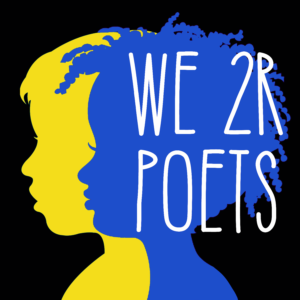
The Regal House Initiative’s We 2 R Poets Program
The Regal House Initiative, Regal House Publishing’s nonprofit arm, will be partnering with Wake County schools to bring a poetry workshop to elementary children. RHI will then publish a collection of the children’s original poems under our Fitzroy Books imprint in a collection that will be subsequently donated to each participating school.
The RHI team feel strongly that by encouraging children to find joy and merit in poetry, we are sharing with them one of the keys to learning and achieving whatever goals they set for themselves:
You can work hard, have fun, learn new things, and be creative—ALL AT THE SAME TIME! Leading young writers and readers through the WE2R POETS workshop, we will teach them some of the basic craft elements of poetry, show them how to use their environments and experiences for creative writing assignments, prove that working together with friends can be one of the most fun ways to learn, and provide them with their own library copy of a professionally published collection of poems of their own composition.
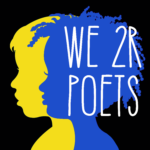
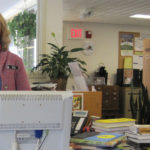
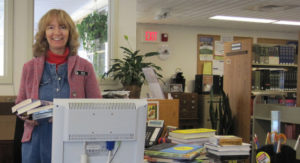 When I’m not writing, my other job is working at a public library. I catalog all the new items into our system and also get to choose and purchase all the children’s picture books and fiction. I keep up with a lot of major reviewers through their newsletters and websites. This helps me narrow down my choices. Fortunately, I get to spend a good chunk of my work hours talking with library patrons, either at the main circulation desk or when I cover the reference desk.
When I’m not writing, my other job is working at a public library. I catalog all the new items into our system and also get to choose and purchase all the children’s picture books and fiction. I keep up with a lot of major reviewers through their newsletters and websites. This helps me narrow down my choices. Fortunately, I get to spend a good chunk of my work hours talking with library patrons, either at the main circulation desk or when I cover the reference desk.
 My usual method of writing a novel is to write thin and short with a solid beginning and ending. Then I gradually plump up the middle parts. Before I know it, my full story is there and then I turn to the long process of revising and polishing. I usually don’t try to write to the market and I probably don’t look for ‘hooks’ as much as I should, but I do try to find the heart in my stories—that something that might make them memorable to those who feel a connection while reading.
My usual method of writing a novel is to write thin and short with a solid beginning and ending. Then I gradually plump up the middle parts. Before I know it, my full story is there and then I turn to the long process of revising and polishing. I usually don’t try to write to the market and I probably don’t look for ‘hooks’ as much as I should, but I do try to find the heart in my stories—that something that might make them memorable to those who feel a connection while reading.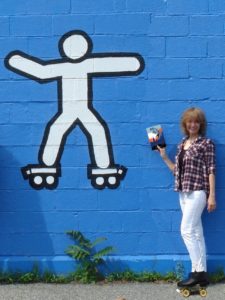 Always one to have weak ankles, I’m not very good at skating and really only enjoyed it as a teen. Whether on ice or wood, I was usually the one who kept near the outer railing, just in case. My children were involved with roller-skating for a while, and watching them delight in the sport gave me a good sense of the environment, which later came in handy when writing Roller Boy. Luckily for them, they didn’t inherit my weak ankles. When recent talk of book promotion came up I was challenged to put on a pair of skates. It was terrifying, but I did it… for all of thirty seconds, anyway, just long enough to snap a picture.
Always one to have weak ankles, I’m not very good at skating and really only enjoyed it as a teen. Whether on ice or wood, I was usually the one who kept near the outer railing, just in case. My children were involved with roller-skating for a while, and watching them delight in the sport gave me a good sense of the environment, which later came in handy when writing Roller Boy. Luckily for them, they didn’t inherit my weak ankles. When recent talk of book promotion came up I was challenged to put on a pair of skates. It was terrifying, but I did it… for all of thirty seconds, anyway, just long enough to snap a picture.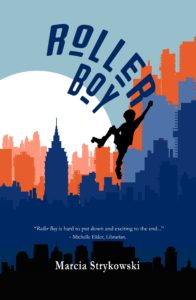 Mateo always assumed he’d make the baseball team with his buddy Jason, but when only Jason makes the team, his mood sinks low. So low, he knows he has to do something about it. But what? What can he be good at? When Mateo wins free lessons, he discovers he’s pretty good at roller-skating. And it doesn’t hurt that the most beautiful girl he’s ever laid eyes on happens to be Roller City’s star skater. But still, roller skating? No way can Jason find out Mateo is whirling around in girly skates—anybody halfway to cool would be hanging at a skate park, on boards or blades. Other issues stacked against him are the strong reservations of his mother, who feels he should be spending his time studying, not skating, and his inability to eat gluten—no more grabbing a pizza with the guys. Despite these conflicts, Mateo keeps his sense of humor and channels his innermost strength into an incredible ride on roller skates that just might take him all the way to regionals.
Mateo always assumed he’d make the baseball team with his buddy Jason, but when only Jason makes the team, his mood sinks low. So low, he knows he has to do something about it. But what? What can he be good at? When Mateo wins free lessons, he discovers he’s pretty good at roller-skating. And it doesn’t hurt that the most beautiful girl he’s ever laid eyes on happens to be Roller City’s star skater. But still, roller skating? No way can Jason find out Mateo is whirling around in girly skates—anybody halfway to cool would be hanging at a skate park, on boards or blades. Other issues stacked against him are the strong reservations of his mother, who feels he should be spending his time studying, not skating, and his inability to eat gluten—no more grabbing a pizza with the guys. Despite these conflicts, Mateo keeps his sense of humor and channels his innermost strength into an incredible ride on roller skates that just might take him all the way to regionals. Marcia Strykowski works at a public library and is a member of SCBWI. She is also the author of Call Me Amy, chosen for Bank Street College of Education’s Best Books of 2013 and shortlisted for the Crystal Kite Award, and its sequel Amy’s Choice. Follow Marcia on her
Marcia Strykowski works at a public library and is a member of SCBWI. She is also the author of Call Me Amy, chosen for Bank Street College of Education’s Best Books of 2013 and shortlisted for the Crystal Kite Award, and its sequel Amy’s Choice. Follow Marcia on her 
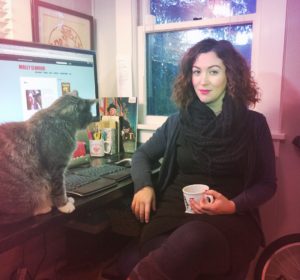 When I was a college freshman, I wrote a short story of two small-town brothers—one the bully and the other his prey. The older one was always finding the younger’s weaknesses and exploiting them, while their machismo father egged the older brother on. It was a simple story with a comic punch line.
When I was a college freshman, I wrote a short story of two small-town brothers—one the bully and the other his prey. The older one was always finding the younger’s weaknesses and exploiting them, while their machismo father egged the older brother on. It was a simple story with a comic punch line.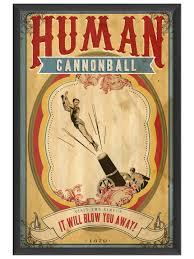 In order to talk about the circus, I have to first talk about the mom, Athena. I’ll admit it: the human cannonball mother (and entire circus theme) came from the Natalie Merchant’s song, Ophelia, specifically these lines:
In order to talk about the circus, I have to first talk about the mom, Athena. I’ll admit it: the human cannonball mother (and entire circus theme) came from the Natalie Merchant’s song, Ophelia, specifically these lines: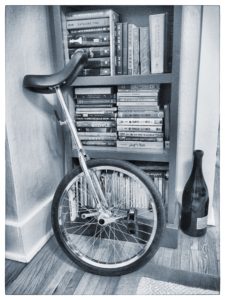 My favorite part about writing this book was researching circuses and sideshows. I loved teasing out that info across hundreds of pages, leading up to the reveal of Bartholomew’s Circus of the Incredible. I explored books and blogs, watched a lot of circus movies, and granted myself permission to see Cirque de Soliel every time they came to town.
My favorite part about writing this book was researching circuses and sideshows. I loved teasing out that info across hundreds of pages, leading up to the reveal of Bartholomew’s Circus of the Incredible. I explored books and blogs, watched a lot of circus movies, and granted myself permission to see Cirque de Soliel every time they came to town.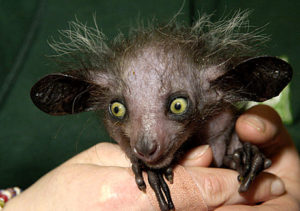

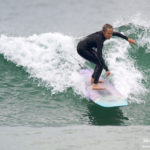
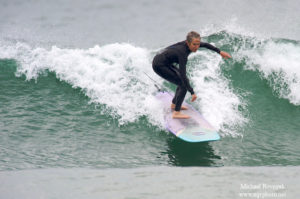 Talk about a broad statement. When I first started writing I found that edict vague and annoying. I didn’t want to write what I knew. What I knew was boring. I wanted to write about worlds that were outside the little province of Kaltman. Outlandish worlds. Fantasy worlds. Dramatic worlds. Wasn’t that what fiction was about?
Talk about a broad statement. When I first started writing I found that edict vague and annoying. I didn’t want to write what I knew. What I knew was boring. I wanted to write about worlds that were outside the little province of Kaltman. Outlandish worlds. Fantasy worlds. Dramatic worlds. Wasn’t that what fiction was about? Whether you write the next great American novel, or manage to find that elusive ending to a 500 word story. Whether you’re surfing hurricane swells in Maui, or shore break slop in Rockaway. If you’ve traded in cool and correct for marvelous and extreme, then you’re already the best writer or surfer you’ll ever be.
Whether you write the next great American novel, or manage to find that elusive ending to a 500 word story. Whether you’re surfing hurricane swells in Maui, or shore break slop in Rockaway. If you’ve traded in cool and correct for marvelous and extreme, then you’re already the best writer or surfer you’ll ever be.